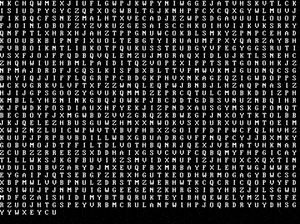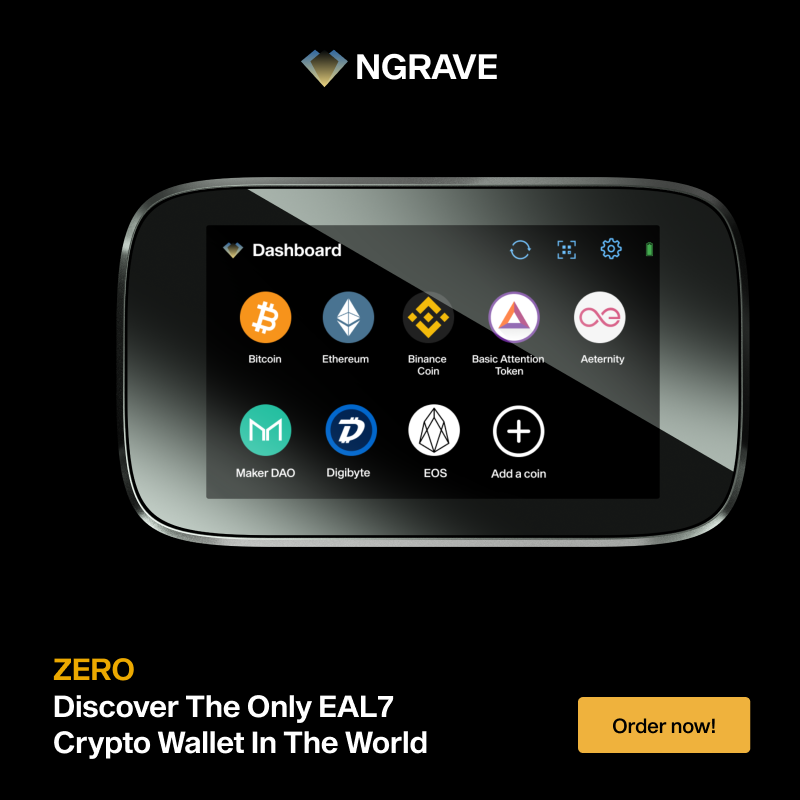As the world moves towards digitization, cryptocurrencies have emerged as a revolutionary asset class. Among these, Ethereum stands as a unique platform that not only allows digital transactions but also hosts a plethora of decentralized applications (dApps). As you venture into the Ethereum blockchain, one essential tool you'll encounter is the Ethereum wallet. Whether you're an experienced investor or a curious newcomer, choosing the right wallet can significantly influence your experience and security. This guide will serve as your comprehensive manual for understanding Ethereum wallets, helping you to choose the best Ethereum wallet based on your specific needs.
Demystifying Ethereum Wallets: Their Primary Purpose and Importance
An Ethereum wallet is a type of crypto wallet specifically designed to interact with the Ethereum network. Before we dive into the specifics of choosing an Ethereum wallet, it's critical to understand what exactly an Ethereum wallet is and why it's so important.
An Ethereum wallet, in simplest terms, is a digital tool designed to interact with the Ethereum network. It allows users to store, manage, and transact using Ether (ETH), the native cryptocurrency of the Ethereum platform. However, its purpose extends beyond merely serving as a digital pocket for your Ether.
One fundamental feature of an Ethereum wallet is the management of private keys. Private keys are sensitive pieces of data that authenticate your ownership of your Ethereum assets. They are like the password to your digital wealth, allowing you to sign transactions and send Ether from your wallet to another. Without your private keys, access to your Ether is impossible. Hence, a wallet plays a critical role in managing and protecting your private keys, thereby ensuring the security of your assets.
Beyond holding Ether and managing private keys, Ethereum wallets also provide the means to interact with the dynamic world of dApps built on the Ethereum network. These applications leverage Ethereum's decentralized nature to offer a wide range of services, from decentralized exchanges to lending platforms, gaming, and more. Your wallet is your passport to this decentralized ecosystem, providing the necessary tools to participate in and interact with these applications.
Critical Considerations in Choosing Your Ethereum Wallet
Selecting an Ethereum wallet is not a decision to be taken lightly. Your choice can significantly impact your cryptocurrency experience and the security of your assets. Here, we outline the essential factors you should consider when picking your Ethereum wallet.
1. Security
The paramount consideration should always be security. As the keeper of your private keys and your access point to the Ethereum network, a secure wallet is vital. Look for features like strong encryption standards, two-factor authentication (2FA), and multi-signature support. Additionally, assess the wallet's reputation - what do users say about its security? Has it ever been compromised?
2. User-friendly Interface
If you're a beginner, the wallet's user interface (UI) can significantly impact your experience. A complex, non-intuitive interface can make the process confusing and prone to mistakes. Look for a wallet that is well-designed and easy to use, with clear instructions and a straightforward transaction process.
3. Compatibility
Your wallet should align with your device preferences. Some wallets are mobile-based, offering apps for Android and iOS, while others are desktop-based and may support various operating systems like Windows, Mac, or Linux. Some wallets, like MetaMask, even function as browser extensions or offer a direct Ethereum wallet download as a browser extension. Ensure the wallet you choose is compatible with your frequently used devices and operating systems.
4. Supported Coins
While this guide focuses on Ethereum, you might also hold other cryptocurrencies. Some eth wallets support multiple cryptocurrencies, while others are specific to Ethereum. If you are planning to manage multiple types of cryptocurrencies, especially if they include top cryptocurrencies like Bitcoin, Optimism, Cardano, and Matic. consider a wallet that supports a wide range of assets.
5. Control of Private Keys
A crucial aspect of a wallet is whether it gives you control over your private keys. Some wallets keep control over your private keys, which can be risky as it means you're not the only one with access to your funds. Look for wallets where you are the only one with control over your private keys - this gives you full authority over your funds and ensures maximum security.
6. Backup & Restore
Accidents happen - you might lose your device or delete your wallet app. For such situations, a backup and restore feature is crucial. This feature allows you to recover your wallet and funds if you lose access to your wallet. Wallets generally provide a mnemonic seed phrase during setup that you can use to recover your wallet.
Decoding Ethereum Wallet Addresses: Security and Precautions

Once you've understood the considerations in choosing a wallet, the next step is to comprehend the nature of Ethereum wallet addresses. An Ethereum wallet address serves as your unique identifier within the Ethereum network. It's akin to a bank account number or an email address, but with additional considerations for security and privacy.
Understanding Ethereum Wallet Addresses
An Ethereum wallet address is a 42-character string that begins with '0x'. This address is derived from the public key associated with your private key. The primary function of an Ethereum wallet address is to allow others to send Ether or tokens to your wallet.
Each Ethereum wallet has a unique address, and all transactions associated with that address are public and can be viewed on the Ethereum blockchain. This transparency is a cornerstone of blockchain technology, promoting accountability and traceability.
However, it's crucial to note that while transactions are public, they are pseudonymous. This means that the identity of the wallet holder isn't directly tied to the wallet address, providing a level of privacy for users.
Security Precautions with Ethereum Wallet Addresses
Despite the pseudonymous nature of Ethereum wallet addresses, certain precautions should be observed to maintain your privacy and security:
Do not reuse addresses: For privacy reasons, it's a good practice to use a new address for every transaction. Most modern wallets automatically generate a new address for each transaction to help maintain your privacy.
Verify before sending: Always double-check the address you're sending funds to. If you send Ether to the wrong address, there's no way to get it back. Take extra caution with large transactions.
Be wary of sharing your address: Be careful where and with whom you share your wallet address. While someone can't access your funds with just your wallet address, they can see all transactions associated with it, which might be information you don't want to share.
Cold Wallets vs. Hot Wallets: A Detailed Comparative Analysis
In the realm of Ethereum wallets, you'll often come across two terms: hot wallets and cold wallets. These terms refer to the connectivity of the wallet to the internet, and by extension, their vulnerability to online threats. Let's delve deeper into understanding these types of wallets, their advantages, and potential drawbacks.
Hot Wallets
Hot wallets are digital wallets that are connected to the internet. Their constant connectivity makes them suitable for frequent transactions and convenient for accessing and using your Ether on a daily basis. They come in various forms, including desktop wallets, mobile wallets, and web (browser) wallets.
Advantages:
- Ease of Use: Hot wallets are typically user-friendly, offering intuitive interfaces that make it easy to conduct transactions.
- Accessibility: Given they're online, you can access hot wallets from anywhere, allowing you to make transactions at any time.
- Cost: Many hot wallets are free to use, making them an economical choice for those new to Ethereum or for those who prefer not to invest in a wallet.
Drawbacks:
- Security Risk: Because hot wallets are connected to the internet, they're more vulnerable to online threats such as hacking, malware, and phishing attacks.
Cold Wallets
Cold wallets, on the other hand, are offline wallets that store your private keys on a physical device, such as a hardware wallet or a piece of paper (paper wallet). Cold wallets are not connected to the internet, making them immune to online threats.
Advantages:
- Security: The most significant advantage of cold wallets is their security. Being offline, they're immune to online threats and are hence considered the safest way to store large amounts of Ether.
- Control Over Private Keys: Cold wallets give you complete control over your private keys, further enhancing your security.
Drawbacks:
- Cost: Unlike many hot wallets, most cold wallets, especially hardware wallets, aren't free. The cost can range from a few dollars (for a basic USB stick) to over a hundred dollars (for high-end hardware wallets).
- Accessibility: Since they're offline, accessing and transacting Ether from cold wallets can be less convenient than hot wallets, making them less suitable for frequent transactions.
Choosing between a hot wallet and a cold wallet depends on your needs. If you frequently transact with Ether or engage with dApps, a hot wallet's convenience might be preferable. Conversely, if you hold a significant amount of Ether that you don't use regularly, the security of a cold wallet would be a wise choice.
Ranking the Best Ethereum Wallets 🔥
Choosing the right Ethereum wallet is a critical step in your cryptocurrency journey. In this section, we'll explore some of the top Ethereum wallets, providing detailed reviews to help you make an informed choice. The wallets listed here include both hot and cold wallets, and each review will cover the wallet type, chains supported, security, swapping, staking, and safety features.
1. Metamask
Type: Hot wallet (Browser extension)
Chains Supported: Ethereum, L1s, L2s, and Ethereum-compatible chains
Features:
Metamask is a versatile and user-friendly Ethereum wallet. As a browser extension, it provides an accessible interface with Ethereum dApps directly from your browser. It supports Ethereum and other Ethereum-compatible chains, making it a flexible option. In addition, it offers a built-in swapping feature, allowing users to exchange tokens directly within the wallet.
The security of Metamask is robust, with encrypted private keys stored locally on your device. For added security, it supports hardware wallets like Ledger and Trezor.
However, Metamask does not support staking directly. You would have to interact with a staking-capable dApp using Metamask.
2. Exodus
Type: Hot Wallet (Desktop and mobile)
Chains Supported: Multi-Chain
Features:
Exodus is a multi-chain crypto wallet with a beautifully designed user interface. It supports a wide range of cryptocurrencies beyond Ethereum, making it a good choice if you deal with multiple cryptocurrencies.
Exodus features a built-in exchange, allowing you to swap between different cryptocurrencies within the wallet. It also supports staking for certain cryptocurrencies.
Security-wise, Exodus encrypts your private keys and transaction data on your device and offers a one-click recovery system with a 12-word recovery phrase.
3. SafePal
Type: Cold Wallet (Hardware wallet)
Chains Supported: Multi-Chain
Features:
SafePal is a hardware wallet that offers top-tier security. As a cold wallet, it keeps your private keys offline and immune from online threats.
Despite being a hardware wallet, SafePal supports a wide range of top cryptocurrencies, including Ethereum and many others. It also features a built-in cryptocurrency trading function, allowing you to swap between different cryptocurrencies.
For staking, SafePal supports a variety of proof-of-stake (PoS) cryptocurrencies, enabling you to earn from your crypto assets.
4. GridPlus
Type: Cold Wallet (Hardware wallet)
Chains Supported: Multi-Chain
Features:
GridPlus Lattice1 is a next-generation hardware wallet that focuses on Ethereum but supports Bitcoin as well. It features a large touchscreen for easier operation, and its security comes from secure elements and multi-signature capabilities.
While the GridPlus Wallet doesn’t support swapping or staking, it excels in safely signing transactions for your Ethereum dApps, thanks to its innovative PIN-protected SafeCards.
5. Trust Wallet
Type: Hot Wallet (Mobile)
Chains Supported: Multi-Chain
Features:
Trust Wallet is a mobile wallet that provides a seamless and secure way to manage your cryptocurrencies, monitor crypto prices, and make trades. It supports Ethereum and many other blockchains.
Trust Wallet also features a built-in decentralized exchange (DEX), letting you swap tokens directly within the app. Additionally, it offers staking for specific cryptocurrencies.
Your private keys are stored locally on your device, and security is further enhanced with biometric authentication.
6. Ledger Nano X
Type: Cold Wallet (Hardware wallet)
Chains Supported: Multi-Chain
Features:
Ledger Nano X is one of the most popular hardware wallets on the market. It supports a multitude of cryptocurrencies, including Ethereum.
The Ledger Nano X is one of the few cold storage eth wallets that support swapping and staking, it can be used in combination with other services like Metamask or MyEtherWallet for these functions.
Security is the key feature of Ledger Nano X, with private keys stored in a secure element of the device, isolated from all other parts.
7. NGRAVE
Type: Cold Wallet (Hardware wallet)
Chains Supported: Multi-Chain
Features:
NGRAVE ZERO is a fully offline hardware wallet. It supports a vast array of cryptocurrencies, including Ethereum.
The NGRAVE wallet doesn't offer built-in swapping or staking features but provides impeccable security features. It is designed with a 'Zero attack surface' - meaning it never needs to connect to an online device, thereby ensuring maximum security.
Choosing a wallet ultimately comes down to your specific needs, how you plan to use your Ether, and how much value you place on convenience versus security. Regardless of the wallet you choose, remember that the safety of your assets also depends on following best practices, such as not sharing your private keys and regularly backing up your wallet.
8. ELLIPAL Titan
Type: Cold Wallet (Hardware wallet)
Chains Supported: Multi-chain
Features:
ELLIPAL Titan is a cold wallet designed for optimal security and ease of use. It supports a wide range of cryptocurrencies, including Ethereum and many other major and minor cryptocurrencies.
One of the key features of ELLIPAL Titan is its air-gapped security. This means it's completely isolated from online networks and thereby immune to online hacks. All transactions are signed offline and then broadcasted using a QR code.
In addition to its security features, ELLIPAL Titan also excels in user experience. Its large touchscreen display and intuitive interface make it easy to manage your crypto assets. It supports exchanging cryptocurrencies directly through the wallet interface, thanks to its partnerships with several swap platforms.
However, ELLIPAL does not offer staking capabilities. This wallet is best for those who prioritize security and want an easy-to-use, fully isolated cold wallet to manage their crypto portfolio.
9. SecuX V20
Type: Cold Wallet (Hardware wallet)
Chains Supported: Multi-Chain
Features:
The SecuX V20 is a vault-grade, hardware wallet designed for the secure storage of both cryptocurrencies and Non-Fungible Tokens (NFTs). It supports an extensive list of over 10,000 coins and tokens across 300 chains, including but not limited to Bitcoin, Ethereum, Tether, USDC, BNB, XRP, Cardano, Polygon, Dogecoin, Shiba Inu, Solana, Tron, Litecoin, and Avalanche.
One of the primary security features of the SecuX V20 is the Certified CC EAL5+ Infineon Solid Flash Secure Element (SE) chip embedded into the wallet. This technology ensures that your private keys remain offline and safe from potential hacking threats and phishing attacks. Moreover, it offers a dynamic keypad for PIN entry, which automatically resets after five unsuccessful attempts, adding an extra layer of security.
The SecuX V20 is also very user-friendly, with a 2.8-inch large color touchscreen that allows for secure, easy, and instant verification of transactions. You can view your portfolio and account balances directly on the hardware wallet.
An interesting feature is its integration with MetaMask via QR-based linking, which simplifies the process of connecting your wallet to this popular Ethereum wallet and decentralized app (dApp) browser. Moreover, it also offers WalletConnect 2.0 for easy access to various DeFi platforms and marketplaces.
For cross-platform convenience, the SecuX V20 can connect to mobile or desktop, offering dual-connectivity via Bluetooth or USB Type-C.
Despite its focus on security, the SecuX V20 doesn't neglect ease of use. Setting up the wallet can be done in seconds, and it can store up to 500 accounts, which makes it suitable for users who operate a diverse portfolio of cryptocurrencies and NFTs.
The SecuX V20 is best suited for users who need a secure and user-friendly hardware wallet that offers extensive coin support, NFT compatibility, and ease of use across multiple devices. Its robust security features and versatility make it a reliable choice for storing a wide range of digital assets.
👉 Click Here for a 10% Discount on All SecuX Products!
What We Recommend: Our Top Picks
Best Functionality - GridPlus Wallet
The GridPlus Lattice1 truly embodies the notion of "One Device, Unlimited Wallets." It provides enhanced functionality with its bundled GridPlus SafeCard, allowing users to keep private keys safe and secure. Private keys can be protected with a simple PIN code and easily restored to a new Lattice1 if required. Moreover, multiple SafeCards can be used to switch between multiple private keys on the same device, offering the flexibility that many users crave. The device isn't vendor-locked, giving users the freedom to migrate keys with open-source tools provided by GridPlus.
Beyond just managing private keys, the Lattice1 provides seamless access to the latest decentralized apps (dApps), NFTs, and DeFi across Ethereum, Layer 2s, and all other EVM chains. It supports a variety of currencies and chains, including Ethereum, Bitcoin, Binance Smart Chain, Arbitrum, Avalanche, Optimism, Polygon, and others. It also integrates with popular wallets like MetaMask, Frame, MyCrypto, Rabby, Ambire, and more.
Security is a top priority for GridPlus, and the Lattice1 reflects this commitment. It offers advanced encryption, an internal secure enclave for maximum protection of sensitive information, tamper detection, and anti-intrusion technology to prevent unauthorized access to the device.
In line with GridPlus's belief that "Privacy is a Human Right," the Lattice1 provides end-to-end encryption to protect all sensitive data. While communication between apps and a Lattice1 typically routes through cloud infrastructure provided by GridPlus, the option to self-host infrastructure for enhanced control is available with lattice-connect, an open-source project by GridPlus.
All these features make GridPlus Lattice1 the perfect choice for savvy and demanding investors looking to manage digital assets and access the latest financial products in the blockchain space while maintaining security and privacy.
Best User Experience - SafePal Wallet
SafePal Wallet goes beyond just safeguarding your crypto; it transforms your wallet into a wealth-building tool with diverse opportunities to grow your assets. With SafePal, you can leverage your assets with unique earning programs and effortlessly trade hundreds of assets instantly using the in-app integration with trading mini-programs. It's tailored to adapt to your knowledge, daily habits, and HODLing tolerance, making it an excellent choice for users of all experience levels.
SafePal is more than a wallet; it's your gateway to the expanding universe of decentralized applications (DApps). With broad asset support and cross-chain compatibility, you can easily navigate the burgeoning world of NFTs, blockchain gaming, liquidity mining, and much more, all from the safety of your crypto wallet. It brings Web3 to your fingertips, letting you discover and interact with hundreds of DApps, buy, collect, and sell NFTs across various marketplaces, and explore DeFi projects with ease and peace of mind.
What makes SafePal stand out is its commitment to user-friendliness. The wallet is designed to be fast and intuitive, with all features managed from a simple app. SafePal upholds the principle of "Your keys, your crypto," ensuring that your private keys never leave your non-custodial wallet. Even SafePal doesn't have access to them, ever, ensuring utmost security for your assets.
SafePal Wallet is also cross-platform, available as a software mobile wallet on iOS, Google Play, Android, and now as an extension for Chrome, Firefox, and Microsoft Edge. The company thrives on community feedback, using it to create tangible improvements and build updates and products that genuinely cater to users' needs.
Lastly, SafePal is set on demystifying DeFi and bringing the decentralized world mainstream. Through its innovative wallet solutions, it simplifies crypto onboarding – and even makes it fun. SafePal Wallet, with its blend of security, user-friendliness, and wealth-building features, is an ideal choice for those seeking a rewarding user experience.
Best Hot Wallet - MetaMask Wallet
As a leading self-custodial wallet trusted by over 30 million users worldwide, MetaMask serves as both a crypto wallet and a gateway to blockchain apps. It allows you to explore blockchain applications in seconds, underscoring its reputation as the go-to hot wallet.
Available as a browser extension and as a mobile app, MetaMask is packed with features that equip users with a key vault, secure login, token wallet, and token exchange—everything needed for comprehensive digital asset management. Whether you want to buy, store, send, or swap tokens, MetaMask has you covered.
But MetaMask doesn't stop at being just a wallet. It provides the simplest yet most secure way to connect to blockchain-based applications, offering users a chance to explore the universe of decentralized apps from a platform they trust. You always maintain control when interacting on the new decentralized web, ensuring your experiences are both empowering and secure.
MetaMask stands out for its strong commitment to data privacy. It generates passwords and keys on your device, ensuring that only you have access to your accounts and data. You always choose what to share and what to keep private, upholding the self-custodial nature of the wallet.
Whether you are new to the world of cryptocurrencies or an experienced user, MetaMask simplifies your journey, offering a safe and straightforward way to access blockchain applications and web3. As the best hot wallet in our evaluation, MetaMask holds the keys to unlock the world of blockchain applications for users across the globe.
Best Security - NGRAVE ZERO Wallet
If you're seeking the pinnacle of security in a crypto wallet, look no further than the NGRAVE ZERO. This cold wallet delivers military-grade security combined with an intuitive user interface, facilitating seamless management of your crypto assets with total peace of mind.
The NGRAVE ZERO stands out for its air-gapped design, which means it generates your keys offline and doesn't rely on any network connection capabilities such as USB, WiFi, Bluetooth, NFC, or 4G. All communications happen via transparent QR codes, eliminating potential avenues for digital intrusion. The ability to create keys and sign transactions on a fully offline device significantly enhances the security of your digital assets.
The NGRAVE ZERO wallet is one of the more expensive cold wallets in the market, but its unparalleled security features make it a worthwhile investment. Users appreciate not only its robust security but also its larger display compared to other cold wallets and the excellent customer support.
It carries the highest security certification in the world, integrating an EAL7-certified OS - the only financial product to do so. This achievement underscores NGRAVE's unwavering commitment to safety.
For an added layer of security, the NGRAVE ZERO incorporates biometric security. Its biometric sensor is used in combination with a solid 8-digit PIN code for authentication and transaction signing. Furthermore, your fingerprint forms part of the variable to create your Perfect Key and unlock your device.
Ultimately, if security is your top priority, the NGRAVE ZERO is the cold wallet of choice. It blends robust, military-grade security with a user-friendly design, ensuring your crypto management is as safe as it can be.














